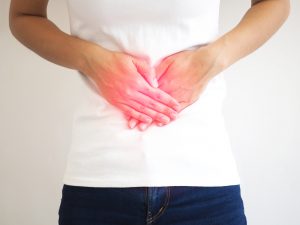What can cause trouble swallowing?
Find out the reasons behind your swallowing problems
What can cause trouble swallowing?
Find out the reasons behind your swallowing problems
What can cause trouble swallowing?
Difficulty in swallowing, also called dysphagia, refers to the trouble in moving food or liquids from the mouth to the stomach. This could either result in a temporary inability to swallow food or needing extra time and effort to swallow.
Dysphagia happens as a result of many medical reasons—most of them related to the gastrointestinal tract.
Swallowing difficulties are often a symptom of another underlying medical condition. Here are some of the common conditions that cause dysphagia.

What can cause trouble swallowing?
Difficulty in swallowing, also called dysphagia, refers to the trouble in moving food or liquids from the mouth to the stomach. This could either result in a temporary inability to swallow food or needing extra time and effort to swallow.
Dysphagia happens as a result of many medical reasons—most of them related to the gastrointestinal tract.
Swallowing difficulties are often a symptom of another underlying medical condition. Here are some of the common conditions that cause dysphagia.



Oesophageal obstruction
Oesophageal obstruction is a condition that happens as a result of something obstructing the tract from your mouth to the stomach, preventing food or liquid from passing through. This is often a result of improper chewing of hard food like meat. The obstruction may also be due to a thinned oesophagus as a result of oesophageal cancer or stomach cancer.






Eosinophilic esophagitis
Eosinophilic esophagitis refers to the inflammation caused by the immune cell called eosinophils. This is considered an immune system condition caused by allergens. In some cases, this is followed by other allergic conditions like food allergies, asthma, or eczema.
GORD(gastroesophageal reflux disease)
GORD occurs as a result of the stomach acid flowing back into your oesophagus. GORD can cause inflammation in the oesophagus and lead to complications like peptic strictures. Peptic strictures can tighten the oesophagus making it difficult to swallow.






Achalasia
Achalasia happens when the oesophagus does not move properly when swallowing due to the damages caused to the nerve cells in the oesophagus. With achalasia, you may also experience difficulties in relaxing the sphincter muscles.
Oesophageal diverticulum
Oesophageal diverticulum is a condition where a protruding pouch develops in the lining of the oesophagus. The most common type of oesophageal diverticulum is Zenker’s diverticulum (ZD), which is a condition that causes the thickening of the throat muscle.



Oesophageal obstruction
Oesophageal obstruction is a condition that happens as a result of something obstructing the tract from your mouth to the stomach, preventing food or liquid from passing through. This is often a result of improper chewing of hard food like meat. The obstruction may also be due to a thinned oesophagus as a result of oesophageal cancer or stomach cancer.



Eosinophilic esophagitis
Eosinophilic esophagitis refers to the inflammation caused by the immune cell called eosinophils. This is considered an immune system condition caused by allergens. In some cases, this is followed by other allergic conditions like food allergies, asthma, or eczema.



GORD(gastroesophageal reflux disease)
GORD occurs as a result of the stomach acid flowing back into your oesophagus. GORD can cause inflammation in the oesophagus and lead to complications like peptic strictures. Peptic strictures can tighten the oesophagus making it difficult to swallow.



Achalasia
Achalasia happens when the oesophagus does not move properly when swallowing due to the damages caused to the nerve cells in the oesophagus. With achalasia, you may also experience difficulties in relaxing the sphincter muscles.



Oesophageal diverticulum
Oesophageal diverticulum is a condition where a protruding pouch develops in the lining of the oesophagus. The most common type of oesophageal diverticulum is Zenker’s diverticulum (ZD), which is a condition that causes the thickening of the throat muscle.



Other conditions that can cause trouble swallowing
Conditions that are not related to the digestive tract can sometimes affect your swallowing.
A condition like transient ischemic attack (TIA or mini-stroke) can lead to weakened muscles in the middle part of your throat (the oropharynx).
Another cause of dysphagia is myasthenia gravis which is an autoimmune disease. With this condition, muscles in various body parts are weakened, interfering with activities like swallowing.
Read more about conditions that may cause dysphagia
Should I visit a gut clinic?
Your swallowing problems may be a result of unhealthy habits such as not chewing your food properly.
Other times, it may mean an underlying medical condition, often in your gastrointestinal tract. If your swallowing difficulties continue, consult a gastroenterologist to identify the source of your disease.
Visit the Sydney Gut Clinic
At Sydney Gut Clinic, we have a team of gastrointestinal specialists trained to identify the causes behind symptoms you experience.
If you are experiencing continuous difficulties when swallowing, schedule an appointment with us to get an accurate diagnosis of your condition and we can direct you to the best treatment options available.
FAQ
When should I see a doctor?
See a gastrointestinal specialist if you are experiencing the following symptoms:
- Difficulty swallowing food, drinks, and saliva
- Pain when swallowing
- Reflux symptoms that do not respond to OTC medicine
- Coughing when trying to swallow
When should I be worried about difficulties in swallowing?
Severe conditions of dysphagia are followed by symptoms such as:
- Sudden swallowing difficulties
- Inability to drink or eat
- Breathing difficulties
- Drooling
- Weight loss due to eating difficulties
- Weakness or paralysis
How do you address swallowing difficulties?
For mild conditions, your doctor may recommend at-home remedies such as exercise techniques that trigger the nerves and muscles in your throat.
Changing your eating habits by eating smaller meals, cutting food into smaller pieces, and avoiding food that causes acid reflux may also help.
What are the treatments for more severe cases of dysphagia?
For severe conditions, your doctor will prescribe treatments based on the diagnosis. Some of the treatments available are:
- Surgeries
- Therapies
- Pneumatic dilation
What doctor do you see for swallowing problems?
Swallowing troubles are often related to your digestive tract and therefore the best option is to consult a gastroenterologist.
Your specialist can prescribe treatments or direct you to further examinations after your diagnosis.
What is the most common cause of dysphagia?
Acid reflux disease.
Is dysphagia curable?
While with proper treatment, dysphagia can be managed, it may not always be curable. This, however, depends on what is causing the condition. Dysphagia may not always be a symptom of an underlying medical condition.
Why do I feel like something’s stuck in my throat after eating?
Dysphagia caused by GORD may make you feel like something is stuck in your throat. This feeling could also just mean that you have some food matter lodged in your throat, like a fishbone for example.
Can dysphagia be caused by stress and anxiety?
It can. Individuals suffering from anxiety and stress may experience a tightness in their throats, which may make it hard for them to swallow food and liquids alike.
How can I treat swallowing problems?
The treatment will depend on what is causing you to have dysphagia. Some general ways you can treat it are:
- Adjusting your posture while eating to make swallowing easier
- Doing oropharyngeal exercises
- Changing your diet
Only attempt these after speaking to a gastrointestinal specialist.
Consult our specialists for diagnosis and treatment of swallowing difficulties
Sydney Gut Clinic services are only available to patients in Australia.









